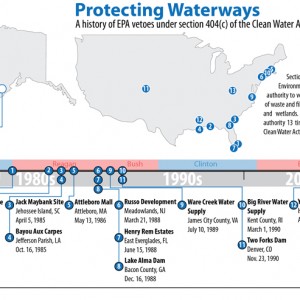The Stream, December 15: Lima Climate Change Deal Puts Onus On All Countries
The Global Rundown |
Negotiators reached a climate deal in Lima, requiring all countries to create plans to reduce their emissions. Meanwhile, major droughts continued to plague California and Sao Paulo, and China documented its shrinking glaciers. Morocco received more money for water infrastructure projects, while Australia cut funding for infrastructure in the Murray-Darling Basin. Access to clean water is critical for safe childbirth, and exposure to arsenic-contaminated groundwater is widespread in India, researchers found. United Kingdom residents will get a break on their water bills next year.
“I think for the first time ever the world can contemplate a global deal applicable to all and Lima has helped that process,”–Ed Davey, the United Kingdom’s energy and climate change secretary, on the deal reached in Lima. While watered down from what many hoped for, the agreement does commit all countries to reducing their greenhouse gas emissions. (Guardian)
By The Numbers |
5 super storms Number California needs to end its crippling 3-year drought. Bloomberg
18 percent Amount China’s glaciers shrank between 1950 and the present, according to the second catalog of the country’s glaciers. Xinhua
5 percent Average drop in household water bills next year for the United Kingdom due to a national price review. Bloomberg
$10 million Amount cut from Australia’s Murray-Darling Basin Joint Program, which manages infrastructure in the river basin. ABC Rural
$553 million Amount Germany is giving to Morocco for water and renewable energy projects. Bloomberg
Science, Studies, And Reports |
India should create both national and regional task forces to combat arsenic in groundwater, a problem that is estimated to affect 70 million people in six states, according to a recent report presented by a parliamentary committee. The Times of India
Access to clean water and sanitation is critical during childbirth to reduce risks to both mother and baby, a new study found. However, 38 percent of health facilities in developing countries do not have access to an improved water source. Reuters
On The Radar |
Conditions in drought-hit Sao Paulo remain dire, with 60 percent of residents reporting that their water service has been interrupted. Los Angeles Times
A news correspondent for Circle of Blue based out of Hawaii. She writes The Stream, Circle of Blue’s daily digest of international water news trends. Her interests include food security, ecology and the Great Lakes.
Contact Codi Kozacek







Leave a Reply
Want to join the discussion?Feel free to contribute!